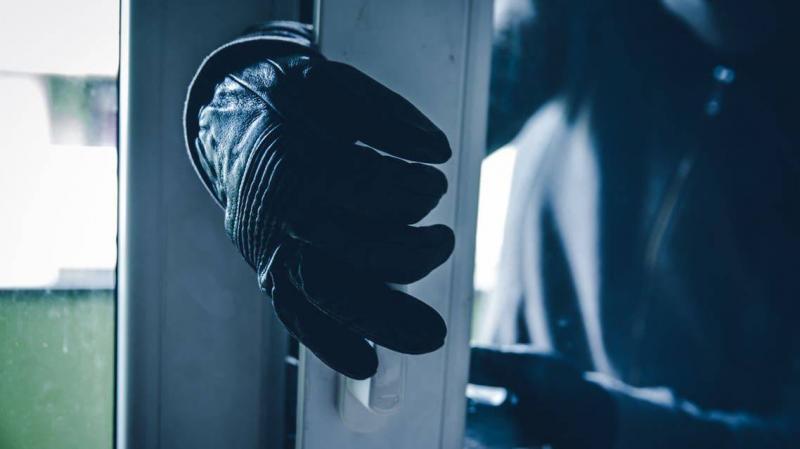The impacts of the financial and economic crisis extend beyond social, health, and educational collapse; they have reached a point where security is threatened, and crime is spreading rapidly in several areas. Notably, gangs involved in robbery and armed robbery have seized the social situation and security laxity as an opportunity to enhance their operations, making it easier for them to evade punishment. Incidents of theft, pickpocketing, and drug trafficking are becoming daily occurrences, drawing increasing attention to security reports, whether officially issued by internal security forces or circulated on social media, sometimes with audio and video footage of armed robbery, kidnapping, and torture, highlighting the ease with which perpetrators reach their targets.
These incidents have become a central topic for the Central Security Council, which convened on Tuesday under the chairmanship of the Minister of Interior in the caretaker government, Bassam Mawlawi. He announced the raising of security alert levels in anticipation of Christmas and New Year’s Eve, aiming to combat crime and threats to security and stability during the holidays.
Recent days have seen a number of new incidents involving criminals. Two days ago, the Information Branch of the Internal Security Forces apprehended a gang that successfully robbed an armored vehicle transporting funds, seizing two million US dollars belonging to a money transfer company and fleeing with the money to the southern region, according to a detailed statement from the General Directorate of Internal Security. In another incident, a resident of the town of Menieh was shot at by unknown assailants while driving his four-wheel-drive "Grand Cherokee" car on the Menieh - Dinniyeh highway, and was robbed of 47,000 US dollars.
The situation does not stop there, as gangs have once again intensified kidnapping operations. In Tripoli, a resident of Bab al-Tebbeneh was kidnapped by unknown individuals who took him to a remote area, assaulted him, robbed him of money and his mobile phone, then released him, leaving him at the Al-Mouloua roundabout, where he was transported by the Red Cross to the government hospital for treatment.
The security breakdown is accompanied by two extremely negative factors: the first is the weakened capacity of security agencies to combat crime due to the difficult financial, social, and logistical conditions facing security officers. Their readiness has declined compared to the pre-crisis period. The second is the judicial strike, where most prosecutors refuse to receive calls from the security agencies about reporting crimes and providing guidance on how to address them. Despite the damage resulting from the judicial strike, former Public Prosecutor Judge Hathim Madi refuses to hold the judiciary responsible for the security breakdown. He believes that while the judiciary "is not operating at full capacity, the security agencies cannot use the judicial strike as an excuse to act at will." Madi attributed this breakdown to "many reasons, including the security laxity that has allowed criminal gangs to evade oversight, the widespread proliferation of weapons, and the anxiety some security personnel feel during security operations fearing retaliatory reactions."
Judge Madi emphasizes that what is happening "reflects the weakness and deterioration of the state and confirms that the solution has become a shared responsibility among all agencies, but effective solutions can only be achieved by restoring the state and its institutions." The public prosecutor's office seeks to fill the gap in the work of public prosecutor offices, limiting the judicial police's contacts to the attorneys general, judges Ghassan Khoury and Soboh Sleiman, for receiving directives throughout the week, while distributing the work of the attorneys general judges: Imad Qablan, Nada Dekrub, Mirna Klass, and Carla Kassis on daily shifts, with exceptions for certain public prosecutors in some governorates.
Officials reject limiting the solutions to security measures alone, as the ongoing deterioration requires primarily political solutions. Retired Major General Najib Malaeb highlights that "security work does not exceed the scope of enforcing laws, as security forces operate under the supervision of the judiciary and implement the administrative tasks assigned to them by law." In a statement to "Asharq Al-Awsat," he noted that "in light of a judicial strike and administrative paralysis, and in the face of the political authority's obstinacy and its neglect of legitimate demands, security leaders have found themselves confronting a situation exacerbated by a social collapse that has resulted in a surge of ordinary, criminal, and transnational organized crime," while pointing out that Lebanon "is suffering from organized smuggling gangs at its borders with Syria, including drugs and human trafficking, and security and military forces have not succeeded in stopping these operations due to the dominance of known party forces."
The security role is no longer limited to combating crime; it has also expanded to warning citizens about operations affecting homes. A recent statement from the security forces indicated an increase in theft and robbery operations in Beirut and Mount Lebanon, carried out by a professional gang whose members impersonate security personnel, driving stolen vehicles to roam areas in Beirut and Mount Lebanon, robbing citizens under the pretext of verifying their identities. The statement also included reports of home invasions at night, searches for cash and jewelry, and armed robbery operations, the latest being an intrusion into a house in Zouk Mikayel, where family members were held in one room while robbers stole jewelry and diamonds worth about 60,000 US dollars and an additional amount of 15,000 US dollars, along with 25 million Lebanese pounds.
Major General Malaeb acknowledged that "the security breakdown stems from the decline in salaries of security officers." He observed that "people have begun choosing alternatives to legitimate security forces, attempting to fill the security vacuum with self-made means, which is a dangerous matter for the unity of the country." He questioned, "Can security agencies, given their financial and logistical struggles, operate in the absence of the judiciary, administrative paralysis, and the deaf ears of responsible authorities?"




